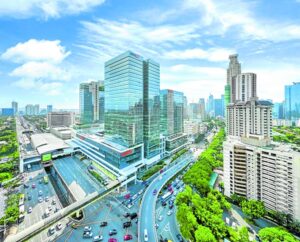
MANILA — The Philippines is lagging behind the flock of Asia’s “new flying geese” in attracting foreign direct investments that are shifting away from China, no thanks to some barriers to entry in the local manufacturing sector and Manila’s geopolitical tensions with Beijing, Nomura said.
In a report, the Japanese investment bank said the Philippines and Indonesia do not appear to be the first choice for global companies looking for new production bases elsewhere, despite being among the fastest growing economies in the region with favorable demographics and strong reform prospects.
This, amid the shift in supply chains away from China that has set in motion what Japanese economist Kaname Akamatsu called the “wild-geese-flying pattern” of economic growth, whereby production shifts from the lead goose (advanced nation) to the next flock of geese (developing nations).
Among the new flock of Asian geese, Nomura said Vietnam and Thailand are the clear winners based on data it compiled and results of a survey of around 130 companies. The two front-runners are expected to continue to build on these gains, except Thailand which is facing a structural deterioration in competitiveness.
‘Wild-geese-flying pattern’
But Nomura said this was not the case for the Philippines. For one, the bank said the country had not been able to benefit significantly from supply chain relocations in the electronics sector despite the commodity accounting for nearly 60 percent of its total exports.
To make matters worse, Nomura said the Philippines’ sea dispute with China is hampering the inflows of firm Chinese investments.
READ: Marcos counters China’s demand on sea row: PH didn’t start the problems
“In our view, this is symptomatic of a broader set of issues in the manufacturing sector, which is still small and even declining in its share of total output,” Nomura said.
“In particular, power rates remain the highest in the region and connectivity is relatively poor after decades of underspending in infrastructure, keeping transport and logistics costs high,” it added.
“Finally, recent geopolitical concerns from the dispute in the South China Sea could be an impediment to Chinese companies looking to diversify supply chains into the Philippines,” it continued.
Limited benefits
But Nomura said there are still “limited” investment opportunities for the Philippines, particularly in industrial parks and nickel.
For instance, Nomura said companies such as Ayala Land are potential beneficiaries as they have received increased commitments from Chinese firms for industrial parks.
READ: Foreign investment surges in Vietnam as companies plan new factories
The bank also said the Philippines—a significant contributor to nickel markets—could cash in on growing global demand for electric vehicle (EV) batteries, which rely heavily on nickel.
“Growth in EV manufacturing directly translates to increased nickel demand … Recent newsflow suggests the US and the Philippines are in discussions over ways to prevent China from dominating nickel processing in Indonesia,” Nomura said.

